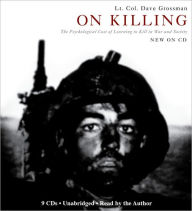Last week I taught a lesson a lesson to help kids when they doubt that God really exists. Unfortunately the guy who had actually expressed these doubts leaned up against the wall and promptly fell asleep. Why? He had competed in a sports event the day before in a neighboring state driving there and back in one day.
Last summer I had one of my volunteers cover a
Sunday school for me. He had the kids lie down in the grass, look at the sky and think about how big God was. Most of the class, including the teacher, fell soundly asleep. Everyone actually really enjoyed the class that day.
Quite often the kids who show up for
Sunday school, or "Youth Church" as we call it, look totally whipped. There is very little energy to participate in an activity let alone concentrate on the lesson. A large percentage of the kids of the church families are only frequent attendees preferring to sleep in. Some go skiing (can't blame them for that).
Being too busy is not a new issue. Feeling like we actually need to do something about it is. We've covered the subject of "
systemic abandonment" before. It's the idea that kids live in a performance-based society. The only way they feel loved is by meeting someone else's expectations; their parents, coaches, teachers, even youth pastors. Kid's are willing to run at this frenetic pace because they believe that their performance is our chief concern and the way they
earn love. They also begin to believe this about God.
They feel they need to earn God's love and earn salvation by their Christian performance. In our rush to give our kids every opportunity we have left their hearts bereft of a love that sustains. The heartache has given rise to songs like, "
Who will Love Me For Me."
Many adults, concerned with the
over committed fast paced lives of our kids, quickly suggest that parents par down their kids schedules. Youth pastors will easily encourage parents to ease off on the after school activities. Unfortunately the underlying motive for the youth pastor is to increase attendance to his midweek youth group event.
In fact what is really needed is just plain "down time" with people, like their parents, who love them unconditionally. They don't need to be
doing anything.
My son and I had a regular habit of camping on the weekends. There are a lot of things you can do on a camping trip. However my budget didn't allow for much. No ATV's, no dirt bikes, no boats, just resting. I'm sure that if we could have afforded the toys we would have played with the toys but we couldn't. Our camping involved good food, reading by the camp fire, an occasional hike, some fishing, and a lot of talking. It was also understood that Saturday or Sunday morning would include a time for quiet personal reflection, Bible study, and prayer. So, unintentionally on our part (or by divine design on God's part) we built relationships. Deep relationships of love, caring, and mutual respect with each other and with God.
Relationship with God is most important in our home, an attitude that was passed from parents to children. Our kids may not have gotten all the toys or opportunities the kids up the road in Aspen get but they got the "one thing" that made all the difference.
Our daughter was killed in an accident when she was fourteen. On her computer we found over thirty poems she had written to God. She'd spend many evenings in her room reading her Bible. We could hear her singing praise songs through the door. She wasn't an awesome student and didn't participate in many extracurricular activities but she had a faith that was real. We are certain she is in heaven enjoying her creator and we will see her again.
We had a solid relationship of which I have no regrets.
At nineteen our son is shooting for a Masters degree. He is an awesome student and developed his own missionary job to inner city kids in Denver. (Ya, we're pretty proud of him) His relationship with God is foundational to who he is.
If, as a parent, your desire is to give your kids the best of everything carefully consider what
the best actually is. Most kids do not end up as professional sports players but do carry sports related injuries to body and soul through adulthood. Some do get into excellent schools by merit or talent. The reward might be a higher paying job than I have. But what of their relationships? Have they learned what real love is? Did they get to enjoy you (you are enjoyable by the way)? Did they see you enjoying your relationship with your heavenly father? Will they learn how to love their spouse from your example?
Well, I can see that this note has taken on a definite parental tone. As a
youth pastor, you might not even be a parent yet. So what can you, as a youth leader, do to help
over-committed teens? Omitting your mid-week meeting might be one thing. Discuss it with the powers-that-be before shutting it down of course. Carefully consider if the benefits of attendance outweighs the negative side effects. Perhaps the time could be better spent for a "family night," a time set aside each week for families to put everything else away and play a game, watch a movie, or simply lay out under the stars.
It would be good to get your
master Pastor on board with the plan. He can encourage the parents to pursue a family night so the time doesn't just get swallowed into a hectic family schedule.
Check and see if the parents actually have a daily quiet-time of their own. I've heard it said that
you can't lead anyone farther down the road then you've been." How are you doing with your
quiet time? Do you have a
love relationship with God? It's hard to model what you don't have. It might be time us, as youth leaders, to hit the
pause button too.








